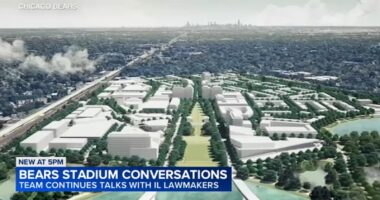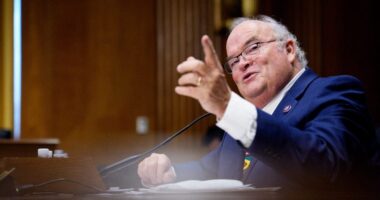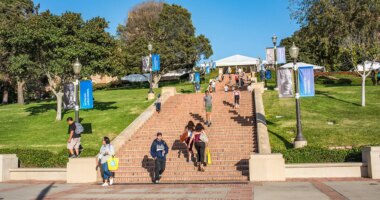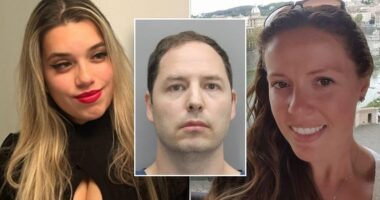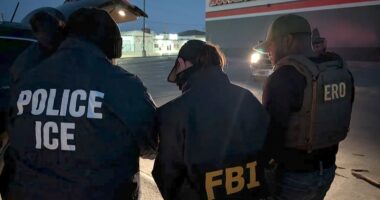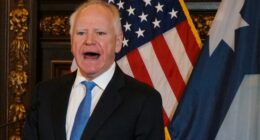Share this @internewscast.com

Thomasina Clarke has witnessed the closure of multiple schools in her once vibrant St. Louis neighborhood, which suffered from a tornado this spring and has seen a dramatic drop in population over the past decades.
“It’s like a hole in the community,” Clarke expressed. She worries that new discussions on closures may lead to the loss of a storm-damaged high school in the historically Black community, a school once attended by alumni like Tina Turner and Chuck Berry.
St. Louis Public Schools is one of the districts across the nation considering how many urban schools to maintain amid tightening budgets, declining birthrates, and a rise in school choice options. A district-commissioned report earlier this year determined that the school system operates over twice the number of schools it requires.
Such decisions are gut wrenching. It’s a financial strain to operate half-empty schools, but research shows kids often fare badly after closures.
Meanwhile, cities like Philadelphia, Boston, Houston, and Norfolk, Virginia, are also contemplating school closures, though public opposition has, for the time being, helped prevent closures in Seattle and San Francisco.
How many public schools will close?
Between 2019 and 2023, enrollment dropped by 20% or more at nearly one in 12 public schools—approximately 5,100—according to a report by the Thomas B. Fordham Institute, an education think tank with conservative leanings. The report indicated that many were chronically low-performing schools in high-poverty areas.
According to the National Center for Education Statistics, public school enrollment is expected to decrease by 5.5% from 2022 to 2031, primarily due to demographic changes. Contributing factors include some students opting for private education or homeschooling and certain immigrant families choosing to leave the country.
Federal funds allowed many schools to stay open during the COVID-19 pandemic, despite tumbling enrollment numbers. But now the relief money is gone, and those under-populated schools are a problem, said Aaron Garth Smith, director of education reform at Reason Foundation, a libertarian think tank.
“The takeaway is pretty clear,” Smith said: Public school enrollment is declining. “It’s going to continue to fall for years to come. And so generally, state and local policymakers have to adapt to this new reality.”
Chicago closures led to student struggles
Chicago shuttered around 50 schools in 2013 — the largest school closure in U.S. history. Afterward, fighting and bullying increased as displaced students settled into new schools, said Marisa de la Torre, managing director and senior research associate at the UChicago Consortium on School Research.
Test scores dipped in the schools slated for closure, and while the displaced students’ reading scores eventually recovered, math performance issues persisted for years.
“There were a lot of communities pitted against each other,” de la Torre said. “It was a very long process, a lot of uncertainty. All of this really affected the staff and the kids.”
Under pressure from the Chicago’s powerful teachers union, the city issued a moratorium on closures through 2027. Around a third of classroom seats remain empty.
Possible closures rattles a community
St. Louis Public Schools’ student population plummeted from 115,543 in 1967 to 18,122 last year, reflecting an exodus of families to the suburbs. That number could drop further as residents leave their tornado-damaged homes.
Sumner and an elementary school — both in the Ville neighborhood — are among seven St. Louis schools that didn’t open this fall because of tornado damage. At a school board meeting in July, consultants argued that the district can’t support all its schools, which on average were built 79 years ago. Closures, they said, could free up money for improvements.
Board member Donna Jones wasn’t buying it.
“Stop playing like we’re not living in a catastrophe here,” she said.
Several shuttered schools already dot the Ville. In June, Superintendent Millicent Borishade said the district remains committed to Sumner, saying there’s no plan to permanently close it. More recently, officials have been quiet on its fate. Frustrated, the teachers union issued a no-confidence vote against the superintendent.
“It just adds more trauma already to those who are suffering,” said Ray Cummings, president of the American Federation of Teachers St. Louis Local 420. “Those neighborhoods need hope.”
When the 150-year-old Sumner was considered for closure four years ago, a coalition including the nonprofit 4theVille and the St. Louis Shakespeare Festival concocted a plan to save it by expanding its arts curriculum.
Mack Williams, an instructor paid by 4theVille, turned lockers into museum displays honoring the school’s most well-known graduates, including tennis legend Arthur Ashe. There was a waiting list for his museum studies class and his students participated in a National History Day competition.
School enrollment rose.
Even now, Williams sees hope, despite Sumner’s estimated $2 million in tornado damage.
“Yes, there’s damage, but it’s still standing and that’s reflective of the resilience of this community,” he said.
A promising student regains focus
Dakota Scott started at Sumner as a sophomore after struggling so much at a college preparatory magnet school that she was asked to leave.
“At the time, I wasn’t really studious. I was kind of rough around the edges,” Scott said.
But, she said, Sumner helped her get on track. She made a movie and joined choir, junior ROTC and student council. She competed in the history competition, and modeled in a Chicago fashion show with classmates.
“From being a kid who was skipping class, I was a kid who was literally on time and attending all of my classes,” said Scott, now a University of Missouri freshman.
Noting the “rich history” of the school and the once wealthy neighborhood, Clarke, who taught Sumner’s movie-making class as a volunteer, suggested all is not lost.
“People left, the community land, businesses left. Schools left. Productivity left. Nothing but a lot of decay left,” she lamented. “And we’re trying to bring it back. Oh my gosh. If we could just get one fourth of what was going on.”
___
The Associated Press’ education coverage receives financial support from multiple private foundations. AP is solely responsible for all content. Find AP’s standards for working with philanthropies, a list of supporters and funded coverage areas at AP.org.


